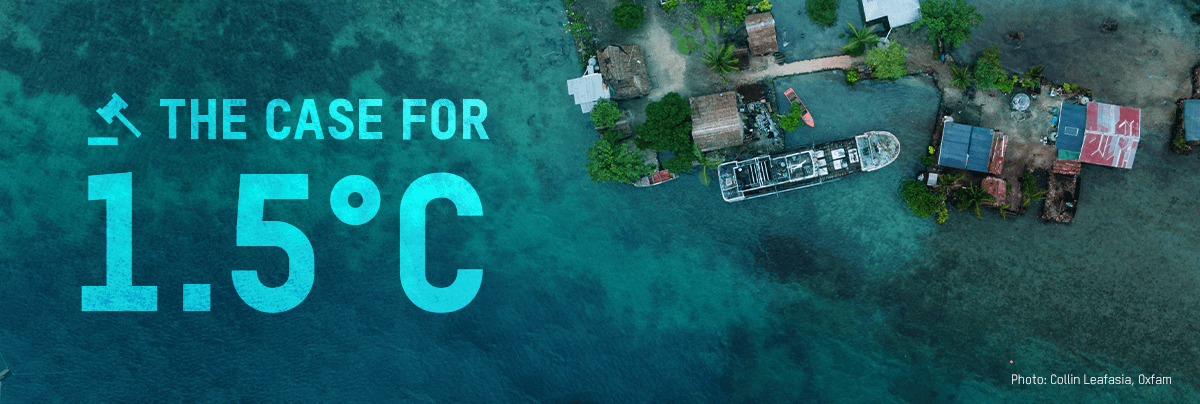The case for 1.5 degrees is about more than numbers and legal arguments – it is about the people and places that are precious to us. This is the first in a series of blogs unpacking why this court action and keeping to 1.5°C matters to communities across the motu. In our latest blog, Kalo from Pacific Climate Warriors discusses why the case for 1.5°C is so important.

350 Pacific Climate Warriors are a grassroots, youth-led network from across the Pacific, including Aotearoa, Australia and the United States. Climate change is a lived reality for the people of the Pacific, who continue to deal with the consequences of inaction, particularly from the Global North including countries such as Aotearoa New Zealand.
In order to address the climate crisis, Aotearoa New Zealand needs to be doing all in its power to ensure they are contributing their fair share, while also acting with the urgency required.
On the 15th of January 2022, the Hunga-Ha’apai-Hunga-Tongatapu volcano erupted causing an ash-cloud and tsunami wave that devastated Tonga. The response from Aotearoa New Zealand was immediate, for within mere days, support was sent to Tonga.
This immediate and urgent support is what the Pacific needs when addressing Climate Change. It should not take a natural disaster for Aotearoa New Zealand to respond with the urgency required.
In 2020, PCW released its Climate Priorities calling on Aotearoa New Zealand’s leaders to demonstrate their commitment to fighting climate change. The current lack of Pacific representation within the Climate Change Commission, is indicative of the lack of consideration given to the regional impacts of Aotearoa New Zealand’s domestic response. Aotearoa New Zealand sits within Te-Moana-Nui-a-Kiwa, and any decision it makes will impact on its Pacific kainga (family).
In its current form, the government’s Emissions’ Reduction Plan will not decrease temperatures to below 1.5. For Pacific communities on the frontlines of climate change, 1.5 is the difference between survival and devastation. The ERP’s lack of focus on decreasing methane emissions from the agricultural sector (its main emitter) is at the detriment of the Pacific.
There is still time for Aotearoa New Zealand to do its fair share and start financing climate adaptation and mitigation. There is still time for Aotearoa New Zealand to divest from fossil fuels.
There is still time for Aotearoa New Zealand to be the kainga the Pacific needs.
Kalo Afeaki
Pacific Climate Warriors – Te Whanganui-a-Tara coordinator

When we talk about ensuring a future within 1.5 degrees, conversations often go a couple of ways. Some conversations paint a scary picture of inevitable doom. A fatalistic sense that we’ve already made the mistakes and there’s no way to fix them now.
Other conversations agree that we can make the changes we need, but sound like kids fighting. “It wasn’t MY fault, so why should I have to clean up?” “She started it! She should have to do it!”
This blame game is an easy trap for people who are frustrated and scared, but it’s ultimately not helpful. If we want to enjoy the benefits of a low carbon future, we need collective responsibility.
Like we tell our children, it doesn’t matter whose fault it is. We are whānau, and when something goes wrong we work together and try our best to make it better.
We currently have teenagers who already plan not to have children due to their anxiety over a warming future. We have young adults who talk about their retirement plan being “the apocalypse”. We have teenagers leading the way in climate activism and begging the adults around them to listen and use their power to make change. These activists can’t even vote, but will be the ones paying for the decisions we’re making today down the track.
But as with a family, the responsibility should not be shared equally. As adults we have a responsibility to our children and the generations that follow. We owe it to them to do our best to let them have a childhood, and to enjoy that childhood free from the stress and anxiety of a warming world.
But our responsibility doesn’t stop within the family. We also have a responsibility to our communities. As people with privilege and power we owe it to everyone to see that privilege shared. The co-benefits of climate action are abundant, and we owe it to our communities to paint a picture of a positive future where climate action is seen not as a loss, but as the gain it represents.
And even wider than that, we have a responsibility to the world. We may be a small country, but even the smallest communities can show leadership on a global scale. We have an opportunity to demonstrate collective action and solidarity. We have an opportunity to show our kids that we care enough about their future to try our very best.
Once people get into power it’s hard to change the conditions that gave them that power. But unless leaders around the world are brave enough to do this, very soon 1.5 degrees is not going to sound like a scary future, it’s going to sound like a past we nostalgically dream of.
We are parents and we are also the decision makers that have the power to effect the very real change we need in order to stay within 1.5 degrees of warming. This is our chance to embody the lessons that we teach our children on responsibility and working together to clean up our mess.
Jenn Hadfield O’Connell and Alicia Hall
Parents for Climate Aotearoa

